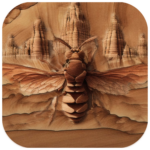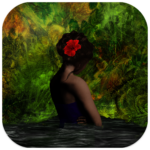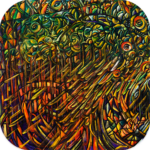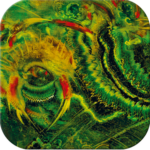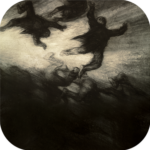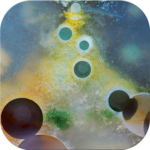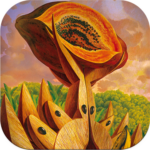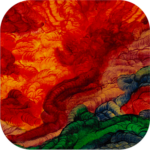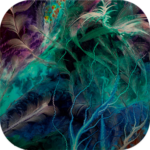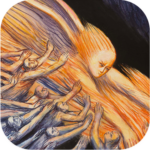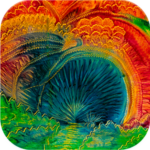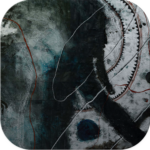About Arms from the Sea
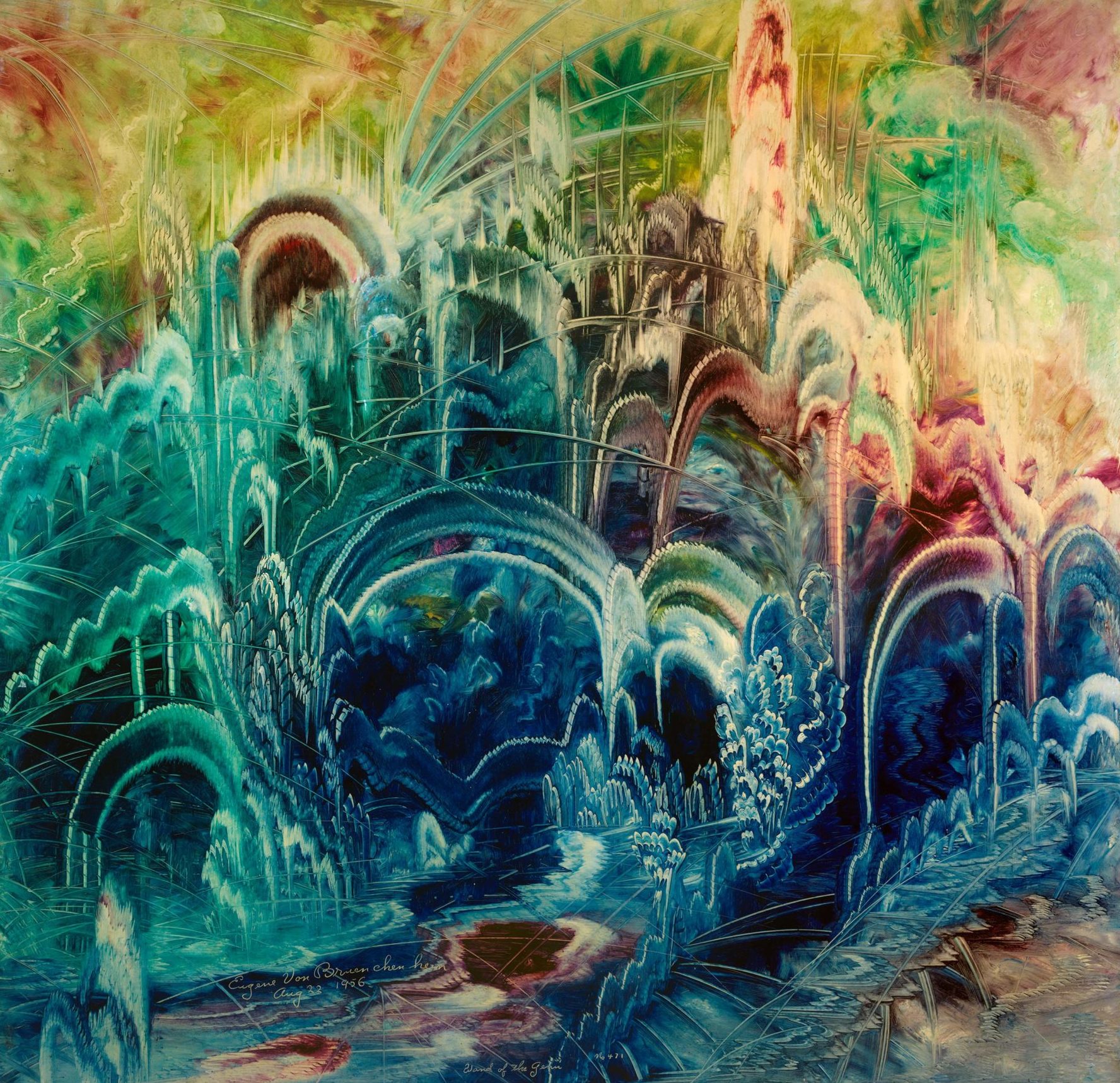
Q: Arms conjures a dystopian future, and the hope for a “sea change” appears in the form of the Polyp, the tentacled god of an oceanic heaven.
RS: The Polyp is perverse, yes. But he poses important questions. How are the ideals of a world established? What are the values of creation and destruction that are at work in our world, and what kind of higher power rules it? Is the higher power a conventional deity or the law of fang and claw? Is it quantum physics or trickle-down economics? If you were going to refashion our world from scratch, who would you put in charge? On what basis would decisions be made about whether creatures flourish or perish?
Q: You’re questioning our ideals.
RS: People know how to create degenerate societies, and I’ve made my little contribution with the State of Salt. The real question is: what would you replace it with, if you had the opportunity?
Q: Arms conjures a dystopian future, and the hope for a “sea change” appears in the form of the Polyp, the tentacled god of an oceanic heaven.
RS: The Polyp is perverse, yes. But he poses important questions. How are the ideals of a world established? What are the values of creation and destruction that are at work in our world, and what kind of higher power rules it? Is the higher power a conventional deity or the law of fang and claw? Is it quantum physics or trickle-down economics? If you were going to refashion our world from scratch, who would you put in charge? On what basis would decisions be made about whether creatures flourish or perish?
Q: You’re questioning our ideals.
RS: People know how to create degenerate societies, and I’ve made my little contribution with the State of Salt. The real question is: what would you replace it with, if you had the opportunity?
“Places that celebrate human creativity as the paramount value are few and far between.”

Q: Myths and legends of young men doing battle with monsters, especially monsters with serpentine qualities, survive from quite a few eras. The heroes are usually protecting their people. Arms turns that inside out.
RS: You could think of it that way. Saint George bonds with the dragon and the two return with something new for mankind.
Q: The god of Arms—the Polyp—is, above all, a creator.
RS: He has the will and the power to create life. And he spends a lot of time thinking about creation—what should be preserved, what should be changed, what should be destroyed. These are important questions for him.
Q: Lyle chafes at the lack of creativity in Salt.
RS: Places that celebrate human creativity as the paramount value are few and far between. The airport in New Orleans is named after a musician. That kind of behavior is unusual—an exception.
“For me, the most striking aspect of culture is the extent to which the human mind—its intuition, its judgment, its creativity—is or is not revered.”
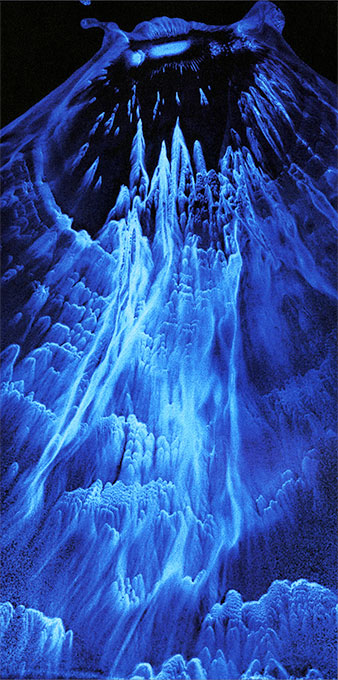
Q: And there’s the question of what’s being created.
RS: Right. What kind of culture would embrace the crossword puzzle as its art form?
Q: The State of Salt is a cultural and literal desert. The people live for “Pleasures”— to be entertained.
RS: On the surface, freedom from work doesn’t sound so bad. But what do people do with their lives if they don’t work?
Q: In the State of Salt, the degeneracy isn’t forced on people.
RS: No, it’s not. They welcome it. And it suits the State. Like most empires, the State of Salt is happy to have its people complacent and diverted by amusements.
Q: And there’s the question of what’s being created.
RS: Right. What kind of culture would embrace the crossword puzzle as its art form?
Q: The State of Salt is a cultural and literal desert. The people live for “Pleasures”— to be entertained.
RS: On the surface, freedom from work doesn’t sound so bad. But what do people do with their lives if they don’t work?
Q: In the State of Salt, the degeneracy isn’t forced on people.
RS: No, it’s not. They welcome it. And it suits the State. Like most empires, the State of Salt is happy to have its people complacent and diverted by amusements.
Q: It’s hard to miss the cerebral motif in the Polyp’s heaven. The landscape is like the human cortex. And the Polyp “mingles” himself with Lyle’s brain. What is Arms saying about the ideal conditions for creativity?
RS: I’m partial to worlds where the brain is elevated. For me, the most striking aspect of culture is the extent to which the human mind—its intuition, its judgment, its creativity—is or is not revered.
Q: This “power of the mind” has a lot to do with what you refer to in the book as “the power to change.”
RS: It does. The Polyp embodies the spirit of change, and he offers Lyle what he offered Nawkoo—a kind of summit of human potential. The power to change. Whether you’re forging a new identity or creating something outside yourself, the power to change is the essence of creativity.
Q: And that power is divine.
RS: For me, the potential for change is tied to the idea of transcending humanity.
Q: Leaving humanity behind.
RS: Yes.
Q: Lyle’s sojourn with the Polyp is a kind of dream. It exists outside time.
RS: There are two dimensions in Arms. One is a slave of time. The other has dealings with time but exists outside it. The Polyp and his sea aren’t mortal. The blue currents continue to flow. There’s no beginning or end to them.
Q: The god in this dream is truly alien. Could a “mingling” with a creature like that really be transformative in a positive way?
RS: That’s a good question. To the extent that humans aspire to the transcendent, what does that look and feel like? I don’t buy the notion of a kindly humanoid god. There are higher powers for us to connect with, but they are more threatening, more frightening, more alien than that.
The transcendent presences in the books I’ve written always have a threatening element, an element that’s alien and inscrutable. The idea that you can close your eyes and launch yourself out of the human shell without experiencing a trauma of the soul—that’s a fairy tale.
Q: Maybe the Polyp is just a projection of Lyle’s aspirations.
RS: Maybe. That’s a reasonable interpretation. Or you could turn it around and say that Lyle is just a projection of the Polyp’s desire to enter the world and transform it. That’s what the mingling with Nawkoo allowed him to do. These alien powers that stalk our cosmos—are they humans trying to be gods or gods trying to be humans?
Q: There’s a reverence for artistry at the heart of Arms.
RS: I had a funny moment in Ireland a couple of years ago. My wife looked at a hill that was striated horizontally, and she said, “It’s magical.” I said, “Sheep did that. Those are sheep trails.” She said, “Get out!” We were with a local later that day, and she asked him, “What makes the magic lines on those hills?” and he said, “Sheep.”
The sheep are creative, whether they mean to be or not. Or rather, everything in our world is a kind of artistry. The sheep and the magic lines they make are the work of a presence we can’t see. If you believe in a humanoid god, you might give him or her credit. If you don’t believe in a humanoid god, you might give evolution or ecology credit. If you find any beauty in life, any wonder, any magic, you’ll be reaching beyond what is strictly human for the cause. However the lines on those hills were created, it is artistry and we should appreciate it as such.
My point is that creativity isn’t a human value. It’s a supreme value for everything that exists, animate or inanimate. Artistry is the soul of the universe.
Q: The biology of the Polyp’s heaven is highly skewed toward invertebrate life forms. Why?
RS: The Polyp has strong opinions about the kinds of creatures that are suitable for heaven. He likes animals that look like plants—filter-feeders, animals that draw nutrients from water. He dislikes predators and parasites. They rankle his moral sense. He also puts a premium on physical beauty, and there too the marine invertebrates rise to the top.
The vertebrates in our world use beauty to attract mates. Visually we pale in comparison to the marine invertebrates. That’s something every snorkeler and diver knows.
Q: If you were choosing creatures for heaven, would humans make the cut?
RS: We’re omnivores and predators by design, and so are many of our mammalian pals. Dogs and cats were designed to kill. Would an enlightened god create a biology that sought to eliminate those characteristics?
In respect to beauty, most mammals are dressed in camouflage. We’re designed to disappear into our background, like soldiers. For many other animals, beauty isn’t there for its own sake. Nudibranchs are colorful to threaten predators. What kind of aesthetic is that? If you eliminated predation, you could launch a biological ethos based on beauty. If you were a god, isn’t that something you’d consider?
